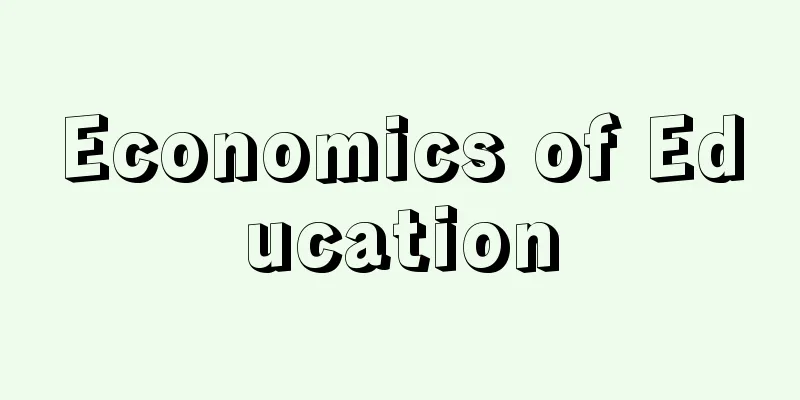Economics of Education

|
A field of applied economics that examines the economic aspects of education using the logic and methods of economics (such as cost-benefit analysis). In particular, it examines the effect of education on the quality of workers, so it has a lot of overlap with human capital theory. Economists in the 19th century, such as J. H. von Thünen and A. Marshall, focused on the effect of education on improving the quality of workers, but after World War II, as economic development became a concern for many countries, the economic effects of education were rediscovered, and the economics of education began to develop rapidly in the 1960s. Source: Heibonsha World Encyclopedia, 2nd Edition Information |
|
教育のもつ経済的側面を経済学の論理や手法(たとえば費用・便益分析)を用いて考察しようとする応用経済学の一分野。とくに教育の労働者の質に与える効果を考察するので,人的資本理論と重なり合うところが多い。教育の労働者の質を高める効果は,19世紀の経済学者,たとえばJ.H.vonチューネンやA.マーシャルらが注目していたが,第2次大戦後,経済発展が各国の関心事になるにつれて教育の経済的効果が再認識され,1960年代に入ってから教育の経済学は急速な展開をみるに至った。
出典 株式会社平凡社世界大百科事典 第2版について 情報 |
Recommend
Congestive infarction
…When there is severe congestion in the lungs due...
Zhu Xi - I love you
A thinker from the Southern Song Dynasty in China...
GA - Global Athletics
《 general agent 》General agent. GA [Guardian Angel...
pond
...In small hollows and flooded pools, mosses suc...
Historicism - Historismus (German)
Content and Method It is difficult to give a univ...
Puntarenas (English spelling)
A city in northwestern Costa Rica. Capital of the ...
Kikindake - Kikindake
...Wheat, potatoes, sugar beets, onions, etc. are...
iolite
…Cordierite decomposes and melts at 1210-1470°C u...
Zantedeschia elliottiana (English spelling) Zantedeschiaelliottiana
… [Takabayashi Masatoshi]. … *Some of the termino...
Hypsiprymnodon moschatus (English spelling) Hypsiprymnodonmoschatus
...They have a large brood pouch on their abdomen...
Lake Ezuko
This lake is located in the southeast of Kumamoto...
Cooperative Farm (Korea)
...In the agricultural sector, there are a few st...
Collection of elegant words - Gagenshuran
A collection of examples of archaic language. Wri...
Umatilla Tangor - Umatilla Tangor
…Some varieties that are said to have been create...
Koi Coin (English name) Khoi Khoin
A nomadic people living in the southern part of Na...









